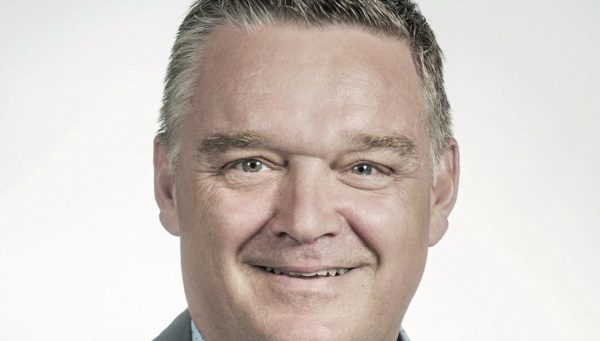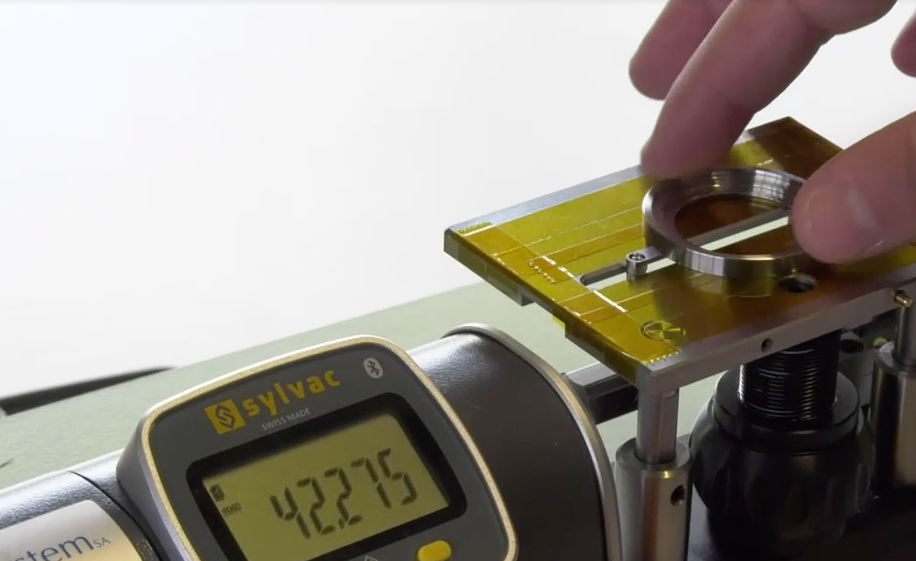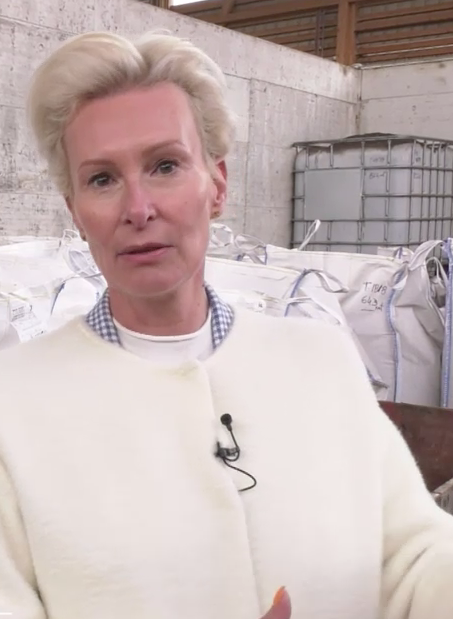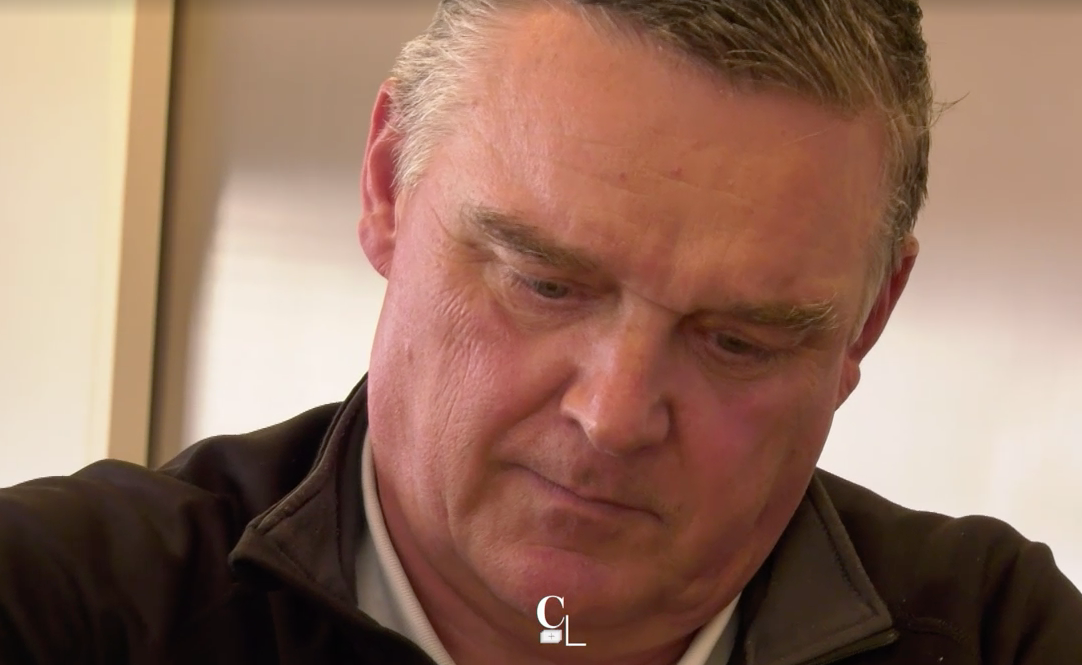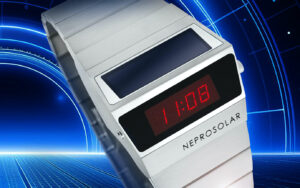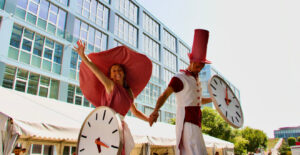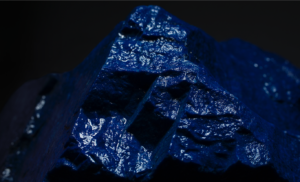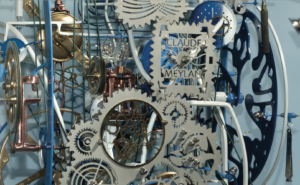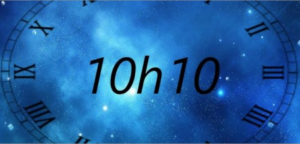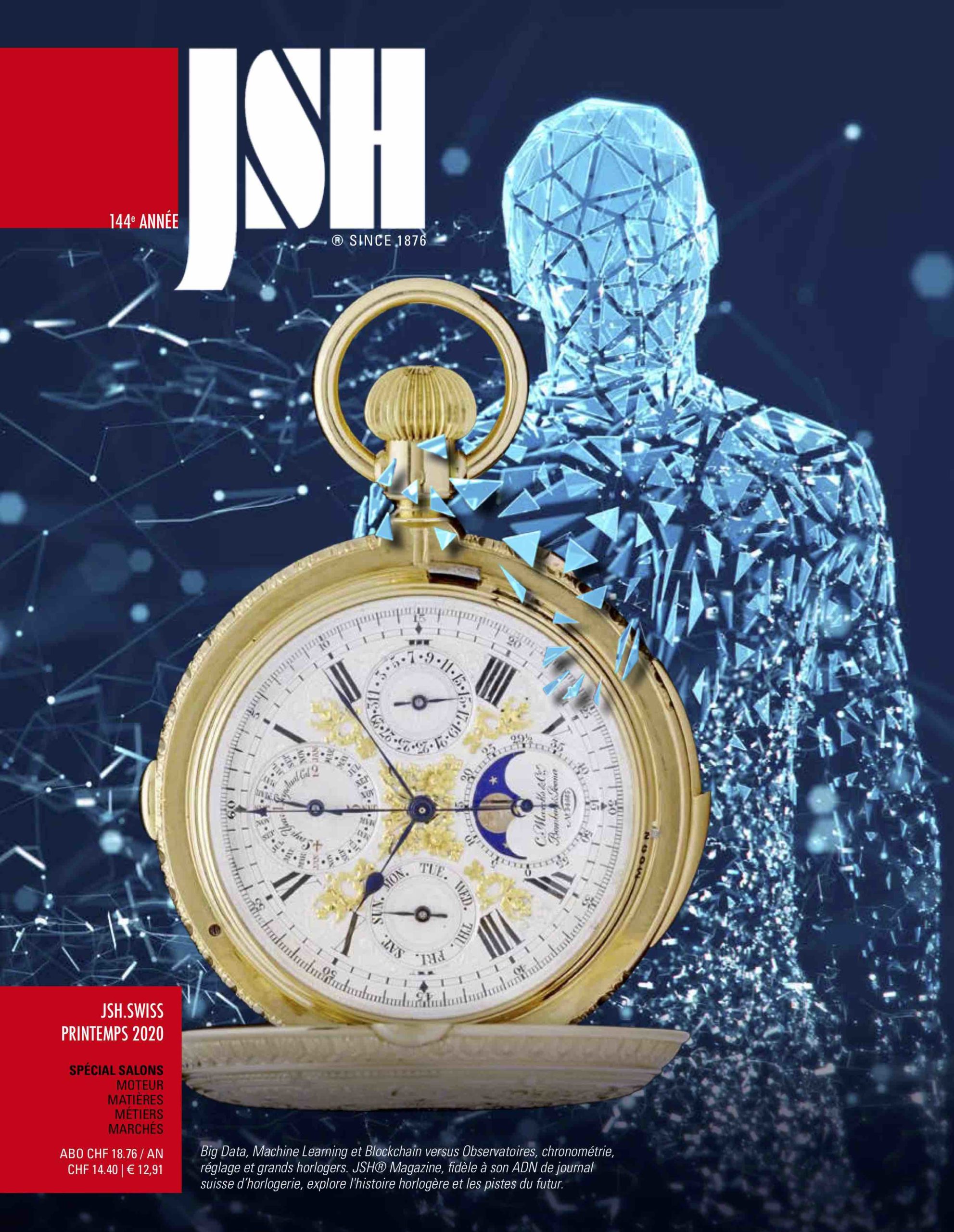“Our bet is that hyper-globalisation will give way to regionalization” explains this ‘possibilist’ who plans to produce 100% recycled steel in the Jura, without any damage to the environment. Cash questions, not evasive, that’s the essence of this interview.
Interview Joël A. Grandjean, JSH® Magazine & Swiss Watch Passport Editor in Chief
Insta SWP | Insta JSH® | Facebook | Twitter | Linkedin
The interview took place on a terrace facing the Lake of Neuchâtel, there were the harbour water, so close. This adopted Jurassian from Nuvilly, a hamlet in Fribourg near Estavayer-le-Lac, almost opposite, then evokes images of his involvement at the head of Just For Smiles, a foundation that offers disabled people the chance to have fun on board a sailing boat. Pure happiness! This man seems to be inhabited by human values.
JAG: Waste worth its weight in gold, one or more solar ovens in the Jura… Aren’t you a sweet dreamer?
Raphaël Broye: In my agenda of 100 things to do before I die, apart from the pilgrimage to Compostela, understanding abstract painting…., there is the priority of leaving a trace for the next generation. To leave my comfort zone, to do things differently… All the same, it took us 5 years and a lot of perspiration to make the concept operational and to get it validated by the market…
Doing things differently when everything has been invented?
This is a world first that will revolutionize our way of doing things for good. With the recycling and chip sorting network operational and the laboratory tests validated, we are expecting the first solar oven to be ready in July 2022. This has already enabled us to achieve many goals with the help of the EPFL, the CNRS, the HES and the private sector. These doctors, engineers, experts in metallurgy, material physics, solar energy, meteorology and recycling have become a team of passionate “possibilists”.
What is it exactly about?
As soon as we have produced our first ingot on our own solar furnace with waste from local companies, we can say that the dream has become reality. We will have created a new local production model in the circular economy.
Opportunism or conviction? How does one become a missionary of 100% recyclability?
Let’s be honest, Panatere embarked on this process of recycling and local production because in reality I was not satisfied with the quality of the steel we were machining: blowholes, structural defects, and often in the end, wasted finishes. This need to acquire global control of our steels was therefore first born of a quality problem. And then our company had to reinvent itself in order to create a competitive advantage over its “private label” and case competitors.
Wouldn’t doing something for the planet be
like taking care of yourself? There are no winners or losers,
it’s about agreeing to live together.
Of course it will cost more! Isn’t ecology a rich man’s sport?
For the record, the global increase in the price of raw materials has given us a big boost: as I speak, we are offering better prices thanks to our stocks built up over the last two years. Of course, industrially we had to go through mini-castings in the laboratory that cost more than 20,000 Swiss francs per kilo! But we have progressively increased the quantities per casting to bring the price of our steel down to market levels.
How do you convince your competitors to supply you with their chips?
Thanks to Precycling, Alexandre Haussener’s company, which has invested a lot of time in setting up a network of collectors and a secure storage system. The chip suppliers were very receptive to the values conveyed by our project and some forty entities willingly supported us.
You seem to be moving forward in an open source way. Aren’t you in danger of being overtaken?
Obviously, other manufacturers will also have to secure their supplies of raw materials and semi-finished products. Our bet is that hyper-globalisation will give way to regionalisation. We are filing patents for certain very specific developments because we expect a return on our investment. For the rest, our know-how will be our competitive edge because we have chosen to lead the way as a pioneer.
At the same time, you need everyone?
The solar cooker project has attracted interest from all sides. Our priority is to get it up and running and to do it with our own money. To guarantee its sustainability, we are studying the scenarios of a cooperative or a foundation of public utility.
Recycling instead of digging in the basement? How many times?
Experts agree that steel can be recycled ad infinitum. As far as recycling is concerned, we have tested 8 successive 100% recycled castings without any loss of performance. Switzerland imports more than 140,000 tonnes of stainless steel each year. In 2022-2023, we will process 200 tons in solar-recycled form. On a global scale, the recycling potential is therefore still intact, and if we assume that suppliers are getting better at sorting their steel grades, the volumes available can only increase. Take the example of paper and cardboard recycling: their selective sorting has greatly reduced the content of our rubbish bags.
The circular economy, the short circuit, good products, a job close to home, a family, pleasure in one’s daily life.
What are the obstacles and enemies of your project?
There are those who think that a zero- carbon project necessarily means greenwashing. There are those who are in the register of beliefs, with as many references as there are personal perceptions. This is the domain of the anti- technical, of emotion, and it is the most difficult. However, when you talk about novelty, you talk about risk analysis, tests, proofs, situations, accreditations, certifications, and standardisation.
Do you have any allies?
In addition to all the players involved, as far as the institutions are concerned, we have been able to obtain valuable support from the Confederation and two positive cantonal notices.
And for the rational sceptics, does the missionary have a recipe?
It’s a bit like a recipe: bring performance up to the level of customer requirements, demonstrate a 165-fold reduction in carbon footprint, mix it all up with revamped processes, sprinkle in regular validation by external auditors, add expertise, taste and adjust with a few more certificates, and voila, it’s ready to serve.
And you think you can “convert” them this way??
I tell them, to continue with the culinary metaphor: “You don’t have to dwell on the innumerable qualities of a frying pan anymore. You have to smell the undergrowth, show off that wonderful pan of mushrooms, let them hear the toast of the fresh butter. Not to mention the unique sensation of having picked them up this morning in the nearby forest.“
A solar furnace? Practical issues. “There are already anti-wind turbine activists“, so how does Raphaël Broye intend to deal with the inevitable opponents of the solar oven, beyond the usual discourse which consists of emphassing the exceptional opportunities for the region? “The fumes will be recovered to avoid the smells and the release of any form of particles. The operating noise level is limited to the pneumatic compressor used to move and orientate the reflectors. There will be no glare as this solar cooker focuses its radiation only on the hearth. Only two round trips per week by truck will be required to feed the solar oven and distribute the finished products.” And he even mentions hydrogen-powered vehicles, just to be a little bit of a stickler for carbon values. As for the visual impact on the landscape? “We will choose a location accordingly. The solar oven represents the volume of two road trains, so the visual impact is very limited,” explains the man who, it is certain, is preparing to “scrupulously follow the procedures for requesting authorisations and putting the project under investigation” while not despairing of finding a commune enthusiastic about the idea of playing the pioneer… It is very possible that the rebellious spirit which sometimes makes the repu- tation of these independent regions will prove him right!



